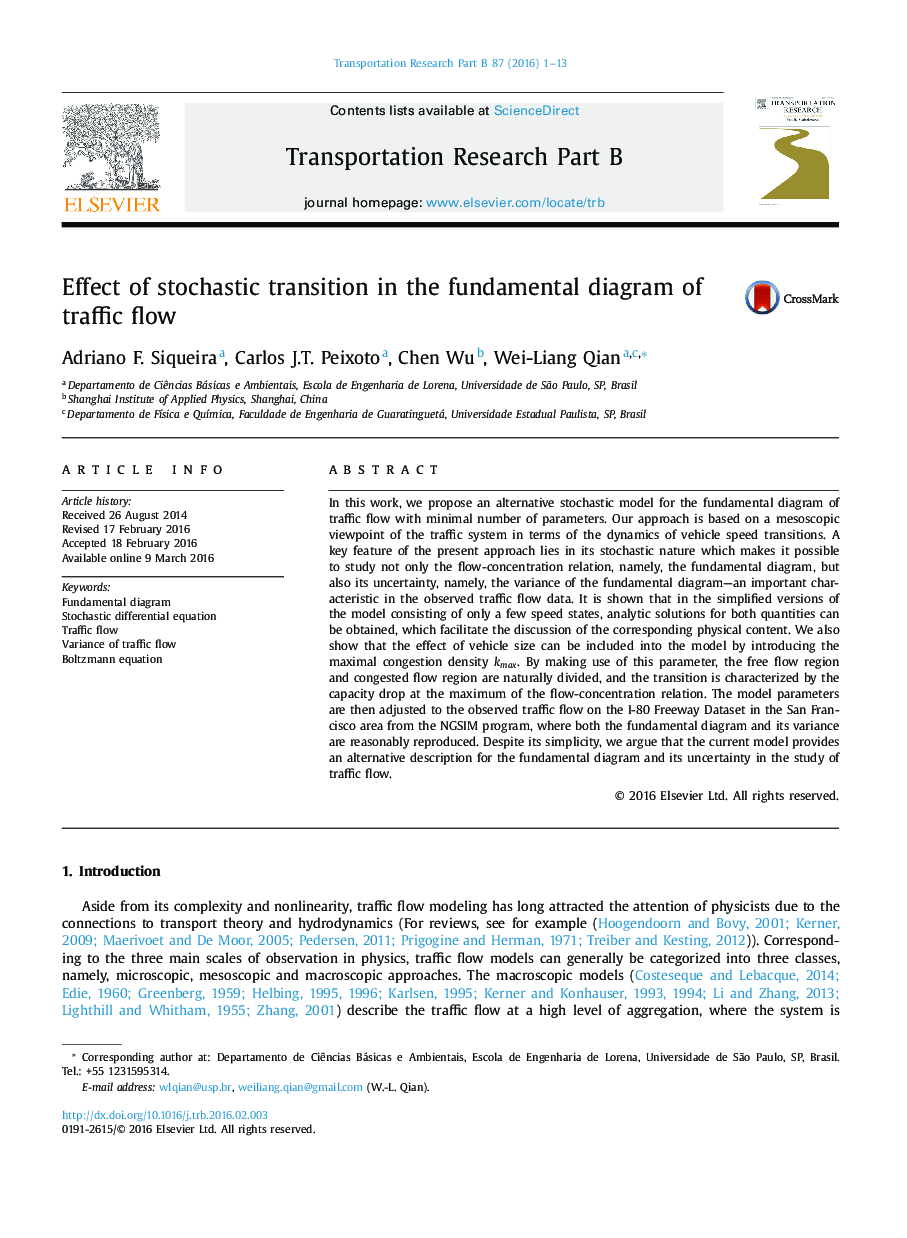| Article ID | Journal | Published Year | Pages | File Type |
|---|---|---|---|---|
| 1131585 | Transportation Research Part B: Methodological | 2016 | 13 Pages |
•The method of stochastic differential equation is employed to model random process.•A simplified two-speed-state model is developed and is able to capture the main features of the fundamental diagram.•Traffic flow and its variance are obtained analytically.•Finite vehicle size is considered.•The “congested phase” comes out natural as the variance of the traffic flow grows with increasing flow.
In this work, we propose an alternative stochastic model for the fundamental diagram of traffic flow with minimal number of parameters. Our approach is based on a mesoscopic viewpoint of the traffic system in terms of the dynamics of vehicle speed transitions. A key feature of the present approach lies in its stochastic nature which makes it possible to study not only the flow-concentration relation, namely, the fundamental diagram, but also its uncertainty, namely, the variance of the fundamental diagram—an important characteristic in the observed traffic flow data. It is shown that in the simplified versions of the model consisting of only a few speed states, analytic solutions for both quantities can be obtained, which facilitate the discussion of the corresponding physical content. We also show that the effect of vehicle size can be included into the model by introducing the maximal congestion density kmax. By making use of this parameter, the free flow region and congested flow region are naturally divided, and the transition is characterized by the capacity drop at the maximum of the flow-concentration relation. The model parameters are then adjusted to the observed traffic flow on the I-80 Freeway Dataset in the San Francisco area from the NGSIM program, where both the fundamental diagram and its variance are reasonably reproduced. Despite its simplicity, we argue that the current model provides an alternative description for the fundamental diagram and its uncertainty in the study of traffic flow.
